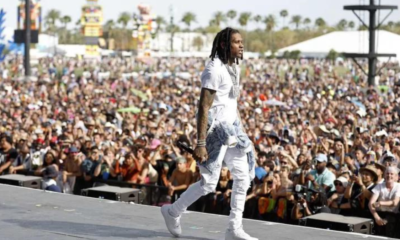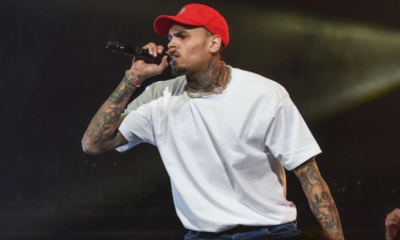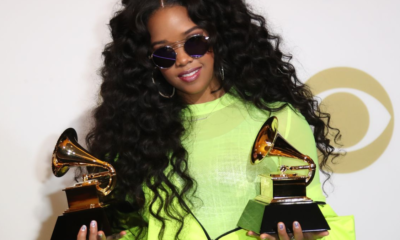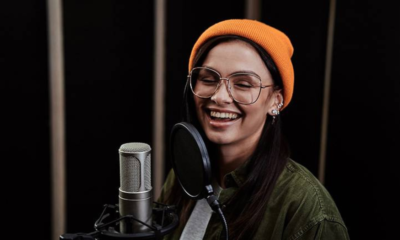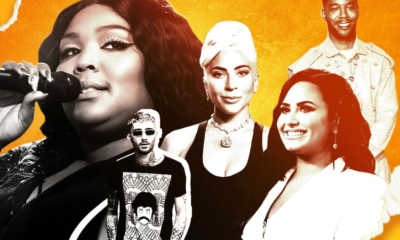Business
Eb Reinbergs – Entertainmen Lawyer
Eb Reinbergs has established himself as one of the most connected, well respected and influential lawyers in the entertainment industry today.
Published
7 years agoon
By
Contributor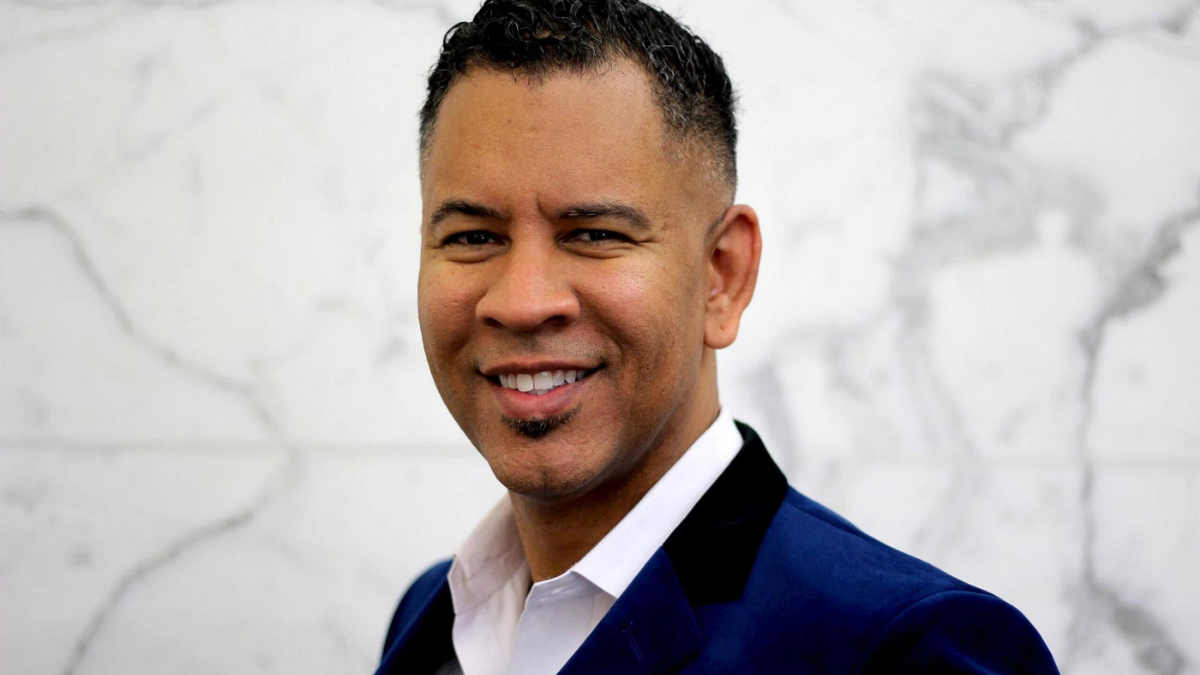
Tell our readers about yourself, how long you have been practising and how you got into this profession.
Let me just say this. Life has its own gravitational pull and what we are, what we have passion for, you can fight those things in your life but your individual gravity will pull you back towards them just so that you can be balanced. I’ve always exceled at two things. One is academia. The second thing is the arts and entertainment, and I’ve had passion in both areas. So when it came time to go to university, I had to make a choice. I chose, if I can call it that, the “safe” route, the one I thought was the safer route to travel, [which was] the road of business finance. After three years on Bay Street, I decided enough was enough. It wasn’t who I was as an individual. I left my Bay Street job on a Friday and had my own office with two partners with whom I started our own entertainment law boutique on a Monday. You take risks in life. The key to success is to follow your passion. It may sound like a cliché but there’s truth in that statement. The only way one will succeed in any form of career or project is if they dedicate themselves to that project. It cannot be a mere 9 to 5; it must be something that you live and breathe. The only way that you will not burn yourself out is if you love it. It’s as simple as that. I realized that for me to be fulfilled in life and for me to succeed, I had to follow my passion, and that was in the arts; it was in merging two halves of my being: the business half – and that includes the legal half – to that of the artistic half. That was my segue into becoming an entertainment lawyer and I will tell you, it started with zero clients. I made a card and I started to hand it out. I dedicated myself to reading and understanding the business and networking. That was in 2001. Fast forward 11 years, I cannot stop my phone from ringing.
What happened in between 2001 and now?
The first company I started back in 2001 was called RGR Lawyers. From there, I was captured by another Bay Street firm and asked to head their corporate and entertainment department, and I did that for a number of years. Everything in my life has synergy. Everything is connected to everything else. My personal practice is entertainment law. However, I own a firm that does more than that. The firm that I own is Three60Legal. It’s a new concept firm. We’re not trying to take over the top floor of a 52-story building; what we’re doing is we’re trying to bring law down to the level of the common man and/or woman. We want to be on the ground floor, but in multiple locations. I am the proprietor of the firm and it is my concept however, my practice within the firm is entertainment. I have other lawyers that work for me in the firm that handle all the other areas.
What areas of entertainment do you specliaze in?
I specialize in talent-side negotiations. That means that I represent musicians who are entering into recording contracts. I’m a deal maker and a deal breaker, meaning that I make deals for them and sometimes, when they get into the wrong deals, I try to break those deals for them. It doesn’t only include musicians. There are celebrity chefs that I represent, people in sports…I do talent-side representation.
Who are some of the clients you have represented over the years?
Melanie Fiona. She’s a nice Canadian talent. Karl Wolf is a very close and good client of mine. Robert Rainford from License to Grill, he’s a celebrity chef. In sports, I’ve represented various hockey players. It ranges from people signed to major companies, all the way down to your new entrants into the industry. That’s why I started something called the Canadian Urban Music Conference. We’re doing free seminars on a monthly basis for people who want to learn about this industry. For me, this organization is about giving back. It’s about education and educating individuals that are interested in the entertainment industry.
It’s a really great organization because I feel like it’s the new artists who, a lot of the time, might see themselves getting into the wrong contracts and the ones who really need this coaching and advice. What are some things that an artist should consider when choosing an entertainment lawyer?
There are two most important things, I would say, the first being experience. Everything has its own connotation and unless you know that language because you’ve been involved for a little while, then you don’t know what you’re doing. My worst nightmare is when I’m negotiating on behalf of a client that owns a label and they’re trying to fight an act and that act has gone to a lawyer who does not practice entertainment law and is asking me a whole bunch of questions that they should just know if they practices this area of law. So experience is one, and the other is connections. They’re very important. I recently facilitated the signing of a 16-year old kid out of Toronto. Talented, talented kid. R&B singer. What did I do? I made a call. The person who discovered Mario is a friend of mine, so I made a call to New York and of course they picked it up because I have the relationship [with them]. Relationships are very important. So those are the two things. Experience is very important, and you want an entertainment lawyer who has relationships.
To date, what has been the most challenging part of your career?
First, I’m going to say that this is not New York. This is not Los Angeles. We’re not in Nashville. Toronto, in many respects, is not an entertainment hub in North America. Being an entertainment lawyer in the North must be a labor of love, and that’s very important. It’s not that it’s a challenging thing, but a large responsibility of mine is educating and slowing people down so that they don’t lose their life savings. Artists, when they get a recording contract, are so happy to get a one that they’re ready to sign on the dotted line in a minute. They don’t call anybody; they don’t get a lawyer to take a look at it. Very often, I’m pushing back against my client saying, “Not so fast. Let’s do this right.” That could be a challenge sometimes. This being entertainment, very often, people think that being an entertainment lawyer, I’m dealing with the superstars all the time, but there are only a handful of superstars, so really, that’s the tip of the iceberg. The rest of the iceberg is under the water, and that’s the 99%. You’re dealing with a lot of people that have budgets and you have to work within their budgets. I always endeavour to work within my client’s budget, whether it’s a large budget or a small budget, because I know that that small client may become a big client tomorrow.
You are very involved in the music industry, not just from a legal perspective. You sit on a number of boards and advisory councils, and you’ve founded a number of foundations relating to music, like the Music Nation Foundation and the Canadian Urban Music Conference, which you mentioned earlier. Do you see anything lacking in music industry?
Yes, I do. In the U.S, there are a number of individuals that we can point to saying that these are the superstars of the music industry. I’m not talking about artists, but about the superstar executives of the music industry, the individuals who are the movers and shakers and who call the shots. I can look at Puffy, Clive Davis, Leonard Cohen. These are the guys. We in Canada have the raw, artistic talent. We do not have the executives in the industry that we can point to and say that these are the moguls that can make things happen and that’s what we need. There are legitimate reasons for this. Of course, the U.S. is a much bigger market, and for many of the large companies that we have in Canada, the shots are called in the U.S, like Universal Music Canada and so forth. They are members of a larger syndicate. We need some moguls on the executive side of things here in Canada. It’s lacking. It starts with U.S. and Canada relations, and that’s another reason why I pioneered this Canadian Urban Music Conference. We have CUMW and it’s amazing, but in many respects sometimes, it’s like being a fish that’s poured into a sea and you don’t see any fish like yourself. [You don’t see] any fish that come from your pond and swim in your type of water. Well, the Canadian Urban Music Conference was designed to be a smaller pond so that the fish that swim in this pond can come together and meet each other. We just need more institutions and also, to further the education process of the people who are not going to be on the artistic side, but are going to be on the business side. We have to grow the infrastructure of the entertainment business in Canada, not necessarily the talent, because the talent’s already here.
I’d like to talk about some technical things now. Who owns the copyright to a song?
The moment that a work is transfixed, or caught in some form of medium, copyright exists at that exact moment for the person who is the author of the work. So if you’re just thinking a poem in your head, the issue with respect to that is that the work is not caught in a medium; it’s caught in your head. If you were to write it down on paper, it’s caught in some form of medium and you automatically have copyright in that work. When people talk about registration of copyright, it’s about going down to the government office and letting them know that [you created] this work. Registrations provide you with greater proof of evidence. It strengthens your copyright in a way that it’s easier to prove that you are the owner. The moment the work is transfixed in some form of medium, copyright exists. What can be hard is proving that you wrote the work or that you are the author of the work. That’s why registration is important.
What’s the difference between ‘copyright’ and ‘fair use’?
The way I like to explain copyright is to reverse the words. ‘Copyright’ really is the right to copy something. If someone does want to use it, then in most situations, they have to pay you. We live in a very interesting world. Throughout time, the richest people on the planet have been those individuals who have owned the most stuff, like the most land, or you were an oil baron, or a shipping magnate. Somewhere in 1990, the world changed because the richest person on the planet became somebody named Bill Gates and he doesn’t own stuff; he owns a computer program, an operating system. It’s what we call ‘intellectual property’ as opposed to ‘physical property’. Our society, years ago, said that people should have the right to own what comes out of their mind, and nobody can copy your stuff without your approval, which is payment. That’s the general law of the land. Now about ‘fair use’. It was established that you created something, so you have the right to copy it. However, our society also said, “Wait a minute…We don’t want to give people ultimate power.” There are some things that trump your copyright, some things that we hold, as a society, more important to ourselves than your right to stop somebody from copyright your work. One of those things is education. If you wrote an article on anthropology and somebody else doing educational work in the area wants to quote a portion of your article in theirs because they’re furthering the education on this, that’s one of the things that trump your copyright. Also, news in our society is so important. Imagine if the news couldn’t show a clip of the movie that is making 200 million on the weekend. They can’t show the whole thing, but the news is important to us, so the news can trump. Another one is critique. They can show a little bit of your work in giving a critique on it. All these things are special cases where the person is not infringing your copyright because it’s a special case in which they’re allowed to do so. They are all bundled under the heading of ‘fair use’.
Can you please explain the term ‘poor man’s copyright’?
If I write a song and you write a song, and those songs are similar, how do you prove that I wrote the song before you, or that you wrote the song before me? One of the great ways of having proof is to prove that you had the work in your possession at a certain period of time, because in many respects, you’re trying to establish a date. One way to do that is to take your work, go down to the post office, put it into an envelope, seal the envelope and mail that envelope to yourself by registered mail. When you mail something by registered mail, it’s very clear to see the date that it was mailed. When it comes to you in the mail, don’t open it because you’re just holding it there in case you ever have to get in front of Judge Judy and you say, “Judge Judy, here is a letter I mailed to myself, please open it up.” She opens it up and sees that in 1995, you had this song. That process is called the ‘poor man’s copyright’, but a better word for it would be the ‘poor man’s copyright evidence’. In that situation, nobody in the beginning, in her mind, has the copyright. She’s after trying to make a decision as to who is going to have it. If one of those individuals puts their hand up and says, “Judge Judy, I just need you to know that I registered my copyright with the Canadian Intellectual Property Office. Then, the copyright law says that if somebody makes the effort of registering, they get a little extra added ‘oomph’, so when they get in front of Judge Judy, then the entire proceeding starts off in her mind with you being the owner of the copyright. This other person really has to make a big case now and show some kind of proof that says you should not be the owner of the copyright. The onus now, is completely on the person who did not register. So that’s what registration does, and it’s not expensive. You can do it online.
So essentially, it’s very advisable for a songwriter or artist to copyright their work.
Absolutely. Before you put it out to the public. If it’s still at home in the vault, then maybe it’s not that important, but if your song is going to be on an album, whether it is your album or someone else’s album, register it. You want to be able to prove that it’s your work.
How long is a copyright valid for?
In Canada, it’s valid for the lifetime of the author, plus 50 years after their death until the end of the year. Copyright always expires on December 31st. In the U.S, they have a longer period of time. In the U.S, it’s 70 years [after the death of the author] until the end of the year.
What happens after that period has finished?
Then, the work belongs to the public. To some degree, if that song is still in people’s minds and is still being played, it becomes part of our culture. The song Happy Birthday, to me, is a part of our culture in the English world. It is debatable, but copyright still exists to that song. Warner/Chapell Music owns the copyright to Happy Birthday and if it hasn’t expired already, it is soon to expire. I would presume that copyright in that song has expired in Canada, but there are arguments that it still hasn’t expired in the U.S. That song makes a lot of money. There’s a reason why when you go to your favourite restaurant and you tell them that it’s somebody’s birthday, they don’t come out singing Happy Birthday because if they did, they would own the Warner/Chapell Music people a lot of money. That’s why every restaurant has their own version of Happy Birthday.
With the Internet and YouTube, people are posting so many cover songs. Should they be careful about that? Do they technically owe money to the copyright owner of the songs they’re covering?
I would say, traditionally, only going back five to six years, people that were putting up a lot of covers would get their music torn down by the labels. What has recently happened is YouTube has started to pay. There’s a collection agency that collects money for labels and for authors of works. YouTube has agreed to share its ad revenue with the owners of the songs that are being covered and played. [Some artists] and their labels are making more money from the covers that are being done than from the playing of the original song. The Internet and labels are beginning to work together, and labels and copyright owners are beginning to see some revenues from the use of their work on the Internet.
What about a more traditional form of covering songs – a band covering songs in a bar for example? Do they have a responsibility towards the copyright owner?
The way that the process is set up is that the band doesn’t have to worry, but the owner of the establishment does. That’s the person that a collection agency goes to because you’re an establishment and you’re making money, because you’re selling food in your restaurant and people come in to hear the music. You are using someone else’s copyright for business purposes.
Concerning contracts, what are some common mistakes that artists make?
First one is that they don’t get a lawyer to look at it. And let’s be clear: they don’t get an entertainment lawyer that specialises in music contracts to look at it. Very, very important to do so. That’s the first thing. After that, what more is there? The lawyer is really the person who is supposed to get in there and advise them and explain to them what they’re getting themselves into. Second thing: a recording contract requires an artist to deliver music to be put out by the label. Most contracts will say that delivery exists when the label accepts the music. Artists can’t just walk in and say, “Here you go” and drop it on the table. The label has to listen to it and accept it. The label has to release the music within a certain period of time after delivery, or the artist can get out of the contract. Here’s the thing. You always hear about artists being shelved, caught in their contracts, caught in their agreement. That’s because the label has never accepted the music. There have been situations that I have been involved in where an artist has delivered over 100 songs to a label and the label said, “Nah, we don’t like any of this.” Since the artist had never officially or legally delivered, the contract just keeps going on and on and the label doesn’t have to release music because they only have to release when it officially delivers. That’s called being shelved, and artists get shelved all the time. I try to build in the safeguards. Very often, I try to put in a clause that says regardless of whatever happens, if the label has not released an album within a certain period of time, then the artist can terminate the contract.
Now I want to cover trademarking a bit – when should an artist consider trademarking their name or their band’s name?
If their name is an integral part of their business, if it’s very important to their image, or very important to their products, then they should protect that brand and protect that name. Trademarking is the best way to do it, especially if you’re using a name other than your personal name. You’d want to do it as early as possible, if you have it in your budget. Definitely, right before you go on tour or you start to use that brand. As soon as a band gets on stage, they’re using a brand. If anybody else goes into the trademark office and submits a trademark for that name, then they’ll get it before you. It’s something that we call the ‘first-to-file’.
To sum up, what top three piece of legal advice you would give to an artist?
[The first one is] ever sign anything without a lawyer looking at it. [Second,] learn your business. That means understand the entertainment industry. Grab a book, so that when the lawyer or the business people are talking their language, at least you can follow along. Perhaps the last thing, from a legal perspective, would be to always try to build an ‘out clause’ into the contract. Every eight out of ten management agreements that I do, the artist will come back to me and say that it’s not working for them, they need out. So what I do now is I built certain ‘out clauses’.
Business
Why Are So Many Rap Concerts Getting Canceled?
From a handful of Lil Baby concert stops to large events like the Made in America festival, rap concerts have been getting canceled quite frequently in recent years.
Published
9 months agoon
August 17, 2023By
Contributor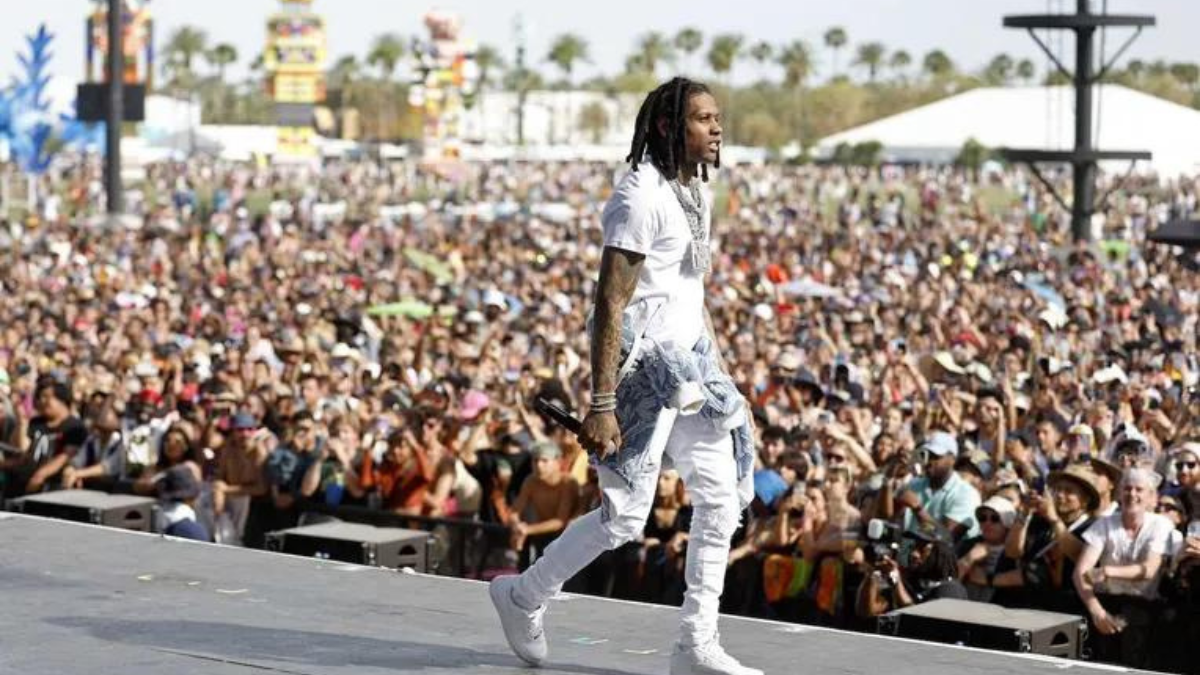



Dan Runcie


Lizzo at a concert in Minnesota (via Manitou Messenger)
Nicki Minaj’s NICKIHNDRXX Tour — canceled in North America. Chance the Rapper’s Big Day Tour — canceled everywhere. T-Pain’s 1UP DLC Tour — canceled. Cardi B’s Invasion of Privacy Tour— chose not to do one.
Touring’s traditional model needs work. Cancellations have happened for years, but this recent wave is different. Many hip-hop artists overestimate demand for ticket sales. We live in an era with endless data, but touring decisions still seem like the industry blindly throws darts. Meanwhile, artists who can sell out those same venues have proudly taken new approaches. These trends are connected.
The popularity of music festivals and concert residencies have added new variables to the live performance mix. Mainstream artists are on a quest to maximize each option. Some are farther along than others. But by the time the majority of rappers find the ideal balance, the touring business might be behind the curve.
Opportunity cost is higher than ever
When artists are on tour, they’re on the road day-in, day-out. It’s traditionally seen as a justifiable tradeoff since many artists earn a majority of their revenue from touring. But it’s still time-intensive, laborious, and costly.
Here’s what I wrote in 2018 in Why Choosing the Right Concert Venue Matters:
A few years ago, Beyoncé, like Drake, once played it safe with concert tours. In 2013 and 2014, The Mrs. Carter World Tour earned an impressive $230 million, but it took Queen Bey 132 shows and twelve months of touring to do so…
Had Beyoncé subjected herself to the same arenas for [On the Run Tour, The Formation World Tour, and On The Run II Tour], she would have needed to perform an additional 207 shows since 2014 to match the $565 million her concerts have grossed in revenue. It would have been impossible to do all those shows while pregnant with the twins, make Lemonade, and do all the other stuff Beyoncé does.
There’s only a handful of artists like Beyonce who can justify the jump to a stadium. For the rest, festivals and short-term Las Vegas residencies are a viable alternative.
But even Taylor Swift has moved on from stadium tours. This summer the 1989 singer will do a European festival run (like Cardi B did last summer), then launch her own festival, Lover Fest, in Boston and Los Angeles. It doesn’t get more 2020 than that.
In an August interview with Ryan Seacrest, she explained why she didn’t do a traditional tour:
“I’m not quite sure what we’re doing with touring. I don’t want to do the same thing every time because I don’t want my life to feel like I’m on a treadmill. There’s a lot that goes into touring that nobody knows about — like you have to reserve stadiums like a year and a half in advance, and that to me is a lot. With ‘Reputation,’ I knew that nobody would really fully understand the album until they saw it live, but this album is different because people are seeming to get it on the first listen.”
All that’s true, but let’s remember two things. First, Taylor is in a select group of artists who can sell out the Rose Bowl, Soldier Field, and MetLife Stadium on back-to-back nights. She wouldn’t forgo that opportunity unless it made financial sense. Second, she’s right about the challenge in reserving venues eighteen months in advance. It’s especially frustrating for those who rise quickly and can’t easily pivot. It’s a good problem to have, sure. But it’s still a problem.
Last year, Lizzo rose to stardom so fast that she outpaced her touring revenue. According to Billboard, last spring’s Cuz I Love You Tour was performed in front of crowds of less than 2,000 people, grossing just over $50,000 per night. To capitalize on her momentum, she came back in the fall with the Cuz I Love You Too Tour at venues that were twice the capacity. But by that point “Truth Hurts” was #1 on the charts and nominated for Grammys. She still couldn’t keep up.
My wife and her friends bought tickets for Lizzo’s October show in San Francisco. They bought tickets at face value back in May for $50. The week before her show they were selling on StubHub for $350! It was a scalper’s dream but an artist’s biggest frustration. All the value was captured by the secondary market. Sure, there’s a chance Lizzo pulled a Metallica-Live Nation and scalped her own tickets. But if that ever happened… whew buddy. The Lizzo hive (and the anti-Lizzo hive) would have burned the internet down by now.
Hip-hop has an uphill battle
The mentality required to succeed in hip-hop and touring is in direct conflict. Most mainstream rappers take pride in beating the odds. They had to bet on themselves to make it this far. Why stop now?
But touring requires far more pragmatism. It’s economics. When supply meets demand, everyone’s happy. Those economics can be especially challenging for hip-hop though, where its streaming popularity outweighs its touring performance.
In a 2018 Wall Street Journal article, Neil Shah broke down how hip-hop may rule the record industry, rock is still king on the road:
There are many reasons that rock remains so powerful on the road, including that, as an older genre, it had a head start on pop and rap. Giant tours by older rap icons like Jay-Z aren’t as common. Fans of newer hip-hop artists skew younger, including teens with less disposable cash, making festival gigs more economical than lengthy, sprawling tours.
“Drake can do four Madison Square Garden shows, but Phish can do 17,” says Peter Shapiro, a New York-based independent concert promoter. Especially in the day-to-day business of clubs and theaters, rock bands, he adds, “still have a huge impact.”
This can make it mistakenly easy for an artist who dominates on RapCaviar or SoundCloud charts to think they are ready for the biggest stages available. Of the top 10 global tours of 2019, none of them were hip-hop. In 2018, just one (Beyonce and Jay Z’s On The Run II). Genre plays a factor.
A good clip from The Joe Budden Podcast where they break down Chance’s canceled tour.
Artists bet on themselves, which is costly
Challenges arise when artists who were once the hot kid start to cool off and need to accept reality. They might not be DONE done, but their prime days are behind them.
That’s where Nicki Minaj and Chance the Rapper are at. Neither admitted that low demand drove their cancellations, but we can follow T-Pain’s humble advice and read between the lines. Several industry insiders believe that both Nicki and Chance couldn’t sell enough tickets to fill 25+ arenas across the US. (I also covered Nicki’s ticketing woes in the Globalization of Hip-Hop, Part I and Chance the Rapper’s in a recent Member Update.)
When both rappers first announced these tours, I thought to myself, “Who the hell gassed them up to think they can still command an arena tour? Who signed this off?” There are plenty of fingers to point, but honestly, neither rapper needed extra convincing.
Keep in mind, Nicki spent the past decade silencing doubters who never thought a female rapper could reach the heights she did. Chance proved the industry wrong as an indie rapper who won Grammys and did arena tours. Their brand is to stay resilient when projections told them otherwise. You wanna go back in time and try to convince them that the lackluster responses to “Chun-Li” and “Groceries” were signs of what’s to come? Yea, good luck with that.
Their mentality is understandable, but it distorts reality. And as more superstars like Taylor and Cardi consider alternatives to touring, promoters may be stretched to fill those same venues with artists who can’t compete in that weight class. It will inevitably lead to more cancellations.
There are levels to this
The traditional touring model is extremely linear. There are tons of venue options for rising rappers who want to perform for a few hundred or a few thousand people. But the leap to arenas (~15,000) is no joke. The jump up to stadiums (~50,000+) is even steeper. The artists at the in-between stages are more likely to leave money on the table or cancel because they couldn’t sell.
The popularity of festivals, residencies, and private events add more options to meet demand:


As AR/VR capabilities develop, more of them will be added to this mix too
I made a similar chart last year on how the traditional albums model has evolved with “mixtapes,” visual albums, podcasts, and more. The trend is similar here. Increased options lead to more experimentation and put artists in control.
Where is this all heading?
This trend should be top of mind for both Live Nation and AEG, which own and operate thousands of venues. It should also concern those who individually manage their venues.
I don’t expect arenas to shorten the timeline for advance booking or cancellation policies. That’s the nature of events in popular venues, whether it’s a wedding or a Migos concert. But they can lean into the trend by pitching themselves as locations for festivals, residencies, private events, or mixed reality experiences. It may be hard to compete against the machine of Coachella, but Rolling Loud and plenty of other festivals are more open to working with what’s available.
By now, every rapper with a big enough following has had at least wondered, “What if I launched my own Astroworld or OVO Fest? Should I do a Vegas residency too?” As I laid out in Why Rappers Started Running Their Own Music Festivals, artists want to leverage their power and run the show. They want the money from the highest profit margin areas of live performance, like sponsorship and concessions. It’s the same model that Floyd Mayweather uses in his boxing matches. He rents out the building and collects the revenue from everything else.
Touring will always be key for the up and comers who want to meet their day-ones. It worked for Meg the Stallion in the rooftop cypher days and Cardi B in the Love & Hip-Hop days. It will always be a core for the legacy artists who can draw crowds wherever—like Rolling Stones, Elton John, or Jay Z. But there’s a whoooole lot of artists between up-and-comers and Hov.
These artist want more options, and the market can offer them. The rest of the industry will be forced to adapt sooner or later.
READ MORE: https://trapital.co/2020/01/09/the-hip-hop-touring-business-is-broken/


Dan Runcie
Founder of Trapital
Business
CHRIS BROWN: The Top Recording Artist ALIVE [Vocal Range]
Chris Brown, American recording artist, and an actor were born in Tappahannock, Virginia to Clinton Brown a corrections officer at the local prison and Joyce Hawkins, former director of a daycare center.
Published
1 year agoon
May 13, 2023By
Contributor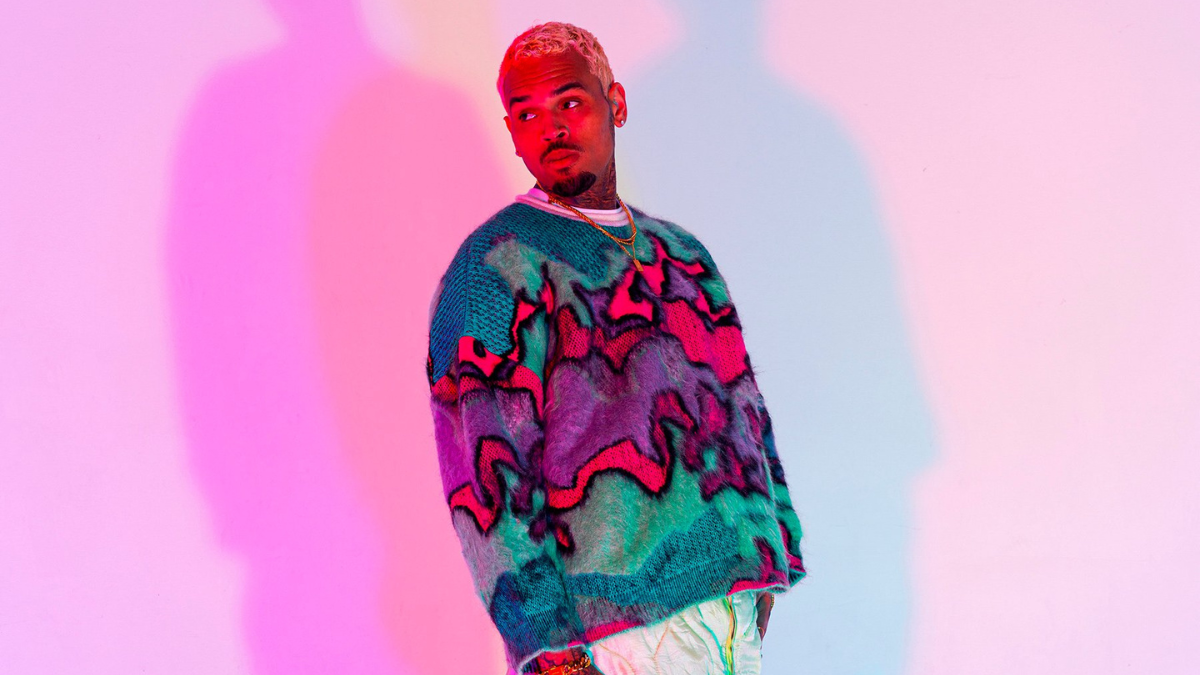

His keen interest in music and dance made him teach himself both the arts and he declares that Micheal Jackson was his role model. He also participated in the local church choir and local talent shows. His perfection in mimicry of an Usher performance made his mother realize his potential and she started looking for a record deal opportunity.


Chris Brown’s Voice Type & Vocal Range
Chris Brown has a light Lyric tenor vocal style. His vocal potential was first discovered by his mom when he was still a kid. Brown reveals to People magazine that he was 11 and watching Ushers performance ‘My Way’, and I began endeavoring to impersonate it. My mother resembled, ‘You can sing?’ And I resembled, ‘Well, no doubt, Mama.” in this way, and began to sing.
Voice Type: Light-Lyric Tenor
Range: E2-E5-G#5


Chris Brown’s voice sits high up. He has relative easiness in the fifth octave (Yeah 3x, This Christmas, Crawl). The strain really makes it difficult for him to sing there, yet he does not have much of a problem. He likewise sings to be a baritone in the E4-G4 range effortlessly.
Not so sure where this originates from, yet I have seen it many times previously. In fact, He is brighter and lighter than the spinto. Due to the fact that the spinto will have a more substantial, warmer and substantial voice. Chris’ voice is awfully splendid and light to be a spinto.
He has a light and thin voice. His voice is additionally surprisingly energetic. Thus he should be a light-verse tenor.
Achievements
At the tender age of sixteen, Chris Brown made his debut with an album titled “Chris Brown” featuring the runaway hit single “Run It”. This song topped the Billboard Hot 100 in 2005 making him the first male artist whose debut song topped the chart after Montell Jordan had achieved the same in 1995. The RIAA (Recording Industry Association of America) awarded the album a double-platinum certification and it sold more than 2 million copies in the US.
Riding on this success Chris Brown, American recording artist released his second studio album in 2007 November titled “Exclusive”. This album had two hit singles “Kiss-Kiss” featuring T-Pain and was number one and “With You” which became number two in the Billboard Hot 100 and was awarded a Platinum certification by RIAA. “The Forever edition” which is a deluxe version of his album with the single “Forever” was released in 2008 in May and this also peaked at number two position in Billboard Hot 100. “Graffiti” his third album was brought out in 2009 December and its official single “I Can Transform Ya” came up to number 20 in the Billboard Hot 100 becoming Chris Brown’s eighth hit on the charts.
Brown has other hits under his belt such as “No Air” with Jordin Sparks, “Shawty Get Loose” with Lil Mama and T-Pain, “Shortie Like Mine” with rapper Bow Wow all of which reached within number ten in the Billboard Hot 100. His dancing capabilities gave him an extra edge over other singers and he was compared to Micheal Jackson and Usher. On the negative side, Brown was given five years probationary sentence and 6 months community service for assaulting singer Rihanna. In 2010 May Chris Brown American recording artist brought out “Fan of Fan” a mixtape with Tyga and “Deuces” from this tape was released in 2010 June reaching the number one position in the U.S.
Musical Style & Influences
Chris Brown has referred to various artists as his motivation, overwhelmingly Michael Jackson. Chris Brown underlines that “Michael Jackson is the motivation behind why he involved himself in the music industry at the beginning of his music career. In “Fine China,” he represents Jackson’s impact both musically and outwardly as Britini Danielle of Ebony magazine mentioned that the melody was “reminiscent of Michael Jackson’s Off the Wall”.
And He also did mention that Usher is another role model in the music industry who seems to be a more contemporary figure for Brown. He discloses to Vibe magazine about Usher that he was the person who the youths gazed up to, in the singing and dancing world, admired him, and keeps up “If it was not for Usher, at that point Chris Brown couldn’t exist.”
Some critics suggested that Chris Brown’s first experience with R&B, perceiving his contemporary adaptions and flexibility in R&B music. As customary R&B prospered around him, the youthful singer started the development of the genre”. His first single “Run It!” as a “prelude to what Brown would keep on doing for the following decade: determinedly upset develops of blues and rhythm.
Business
TOURING AND THE SINGER
Touring artists experience a wide range of issues including physical and vocal fatigue, mental boredom, poor health…
Published
1 year agoon
May 10, 2023By
Contributor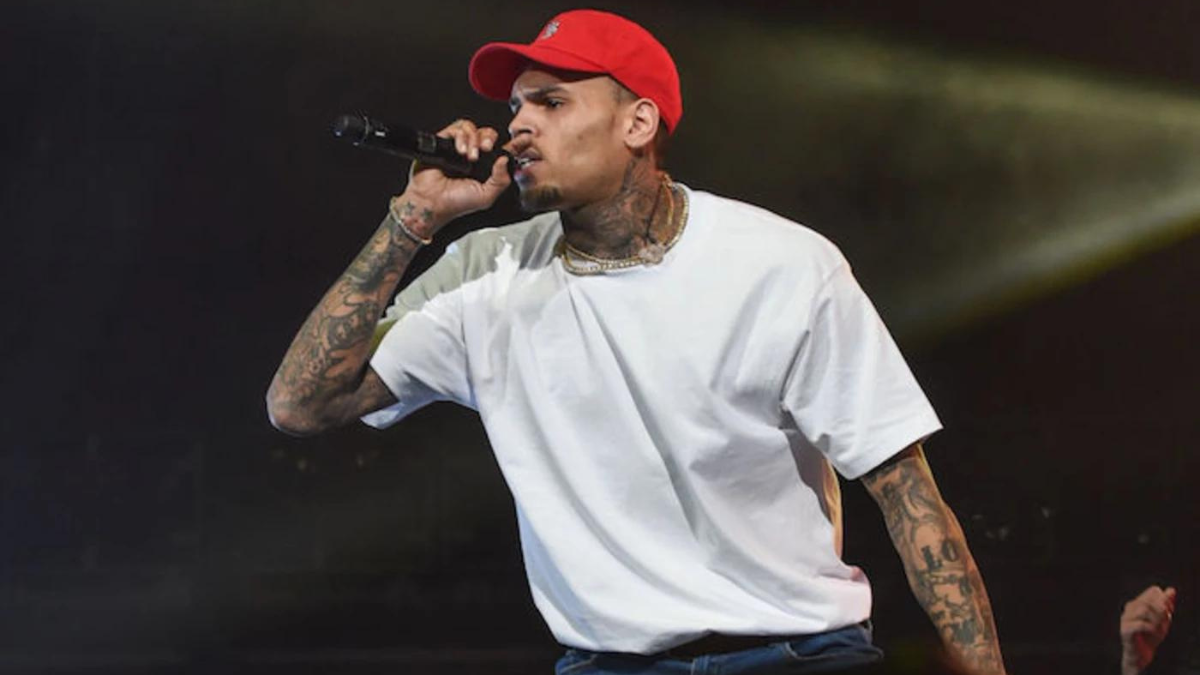

1. How important are vocal warm-ups and why?
Warm-ups are almost more important than vocal technique practice. It is vital to ensure we are getting the vocal ligaments and the intrinsic vocal muscles ready to do the job required during singing. When we talk we only use a limited range of pitches (around a major third or so) but when we sing we may use over two octaves. By warming up we are getting the different layers of the vocal folds ready to work at the higher frequencies required for singing. It is also important to get the larynx and the articulatory muscles ready to deal with singing lyrics. If we don’t get the voice ready and warmed up then we are running the risk of inducing vocal fatigue and ultimately misuse which could lead to vocal pathologies such as vocal fold oedema (swelling), nodules or polyps.
2. How important is vocal technique and why?
The reality is that there are many contemporary commercial singers with a successful career who do not have vocal technique to back their art or the vocal workload experienced as a touring singing/artist. It may be possible to get away with poor vocal technique in the short term or the studio setting, where it is possible to record as many tracks as necessary to get a good take. But when one is performing, live and touring, poor technique will eventually have a negative compound effect on the vocal folds, which increases the risk of injury. Having a well structured technical regime not only helps the singer to build range, stamina, strength and vocal control but will also help to readdress any imbalances acquired during the performance. Understanding how the voice works technically will help the singer to make the right choices when it comes to repertoire, vocal style, use of range or singing with a tired or sick voice.
When it comes to the creative side technique will ensure that the artist can realise their creative vision, to sing unhampered by limitations of vocal range, the ability to transition easily between registers, breath management, vocal tone, the ability to sustain long notes, vocal qualities and dynamic control.
3. What physical and mental effects can touring have on an artist? How can this contribute to vocal health problems?
Touring artists experience a wide range of issues including physical and vocal fatigue, mental boredom, poor health, disruption to dietary and daily routines, feelings of isolation from friends and family. Whether they are travelling in a band van, tour bus or flying, most artists suffer from disruption in sleep, daily routine, dietary habits etc. When there is a group of people travelling together in close proximity there is also an increase in risk for communicable illnesses such as colds and cases of flu. Flying may cause dehydration and vocal fold swelling due to an increase in atmospheric pressure. This may cause the voice to be husky or hoarse and limit the singer’s ability to access their upper/lower ranges. Environmental conditions such as air-conditioning, heating, humidity, dryness, altitude and cold temperatures will also impact the singer’s physical, mental and vocal health. In addition, if they are crossing time-lines then jet-lag will contribute by reducing physical and mental function. Being tired, stressed, rundown or dehydrated will impact the vocal fold’s ability to function optimally resulting in loss of range, tonal quality and sustainability.
4. Are vocal health problems more common today? Or do you think artists are more open about their health as it is mediated in the press more?
I think it is a combination of instant media and the kind of pressure, vocally and physically the current day artist is under. Pressure to ensure they sell their music and make money for their label etc. This means that they tour heavily and they are obliged to do a heavy load of publicity and networking, in turn, their voice does not get as much rest as it needs to do its job on stage night after night. Depending on the label/management tours may be more intensive with more performances packed in over a shorter period. Some labels have a policy of not allowing their artist to do more than three shows in a row, but not all artists are well looked after in this way. In the past, it would have been viewed more negatively by the public/fans if they knew that the artist was having vocal problems. Today people seem to think it’s par for the course as there is so much in the media about singers who have to cancel tours and gigs due to voice problems.
5. If there is no option to cancel a show a steroid injection may be required. What are the effects of this? Is it only temporary? Can it do more harm than good?
Steroid injections can be very effective in the short-term to help a performer get through a show. When a major artist cancels it means the loss of millions of dollars. So the management tries hard to prevent this from occurring. One-off steroid injections do not commonly have long-term medical side-effects. It only becomes problematic when this becomes a regular dose. Having an injection does carry a risk of injury if it is not done safely and accurately. High or prolonged doses of steroids (injections or tablets) will impact the body systemically e.g. excess fat distributed weirdly, prone to infections, and a risk of injury to the vocal folds such as nodules, haemorrhage or laryngitis.
Given appropriately and safely a steroid injection can save the day.
6. Are there any other ‘quick fix’ medicines that are used on tour? What are the effects?
I can’t think of any. I imagine any kind of analgesia that helps with pain might be used in some cases. Depending on the type of the analgesia will depend on the side effects. Obviously, narcotics run the risk of dependency and poor motor control. Some of the more common over the counter types such as paracetamol and codeine can cause constipation if taken regularly. Salicylates (e.g. aspirin) act as blood thinners and are not recommended for singers as a possible side-effect could be vocal fold haemorrhage.
7. Is it necessary to have surgery or will the body fight back if it’s allowed complete vocal rest?
Surgery depends on the type and severity of the vocal pathology as well as the time constraints of the artist. If there is pressure for the artist to get out and work e.g major tour, imminent album launch or significant performance then the powers that be are more likely to opt for surgery. If the artist/singer is not under such pressure or can’t afford surgery then alternative options may be considered at first.
- These days vocal nodules are generally treated with therapy and vocal technique if they are in the pre-nodular or soft stages. Some surgeons will treat hard nodules with surgery, though I have seen cases where nodules have not been surgically removed and the singer had successful rehabilitation through voice therapy and correction of poor vocal technique.
- Vocal polyps and severe haemorrhages, cysts and granulomas generally require surgical intervention. The singer is then on vocal rest for 2-3 weeks.
- Vocal oedema requires rest and addressing the cause.
- Infections and laryngitis do not require surgery.
It very much depends also on the doctor i.e. their training and experience. An ENT surgeon or ENT/laryngologist who works with singers a lot will tend to only do surgery if necessary, and there is no response to voice therapy and/or addressing the cause.
Vocal rest will help in many instances but the problem may re-occur if the cause is not addressed. Many common voice issues in singers can be dealt with through rest, rehydration, good vocal technique and a balanced healthy diet.
8. Do you think audiences have higher expectations when going to watch an artist perform? ie: Pitch, physically performing.
With the use of auto-tuning in the studio, audiences have come to expect a singer to sing perfectly. This is compounded by the impact of music videos and the use of lip-syncing, as well as the use of auto-tuning in the live setting. Having said that the general listening audience is not always focusing on things such as pitch or even lyrics, for them, it’s the experience of the live performance.
9. What is your advice for a singer going on tour?
Where possible sleep – cat naps are as useful to the body as whole night sleeps, ensure you are getting 1.5 to 2 L of water a day, take dietary supplements, avoid respiratory infections like the plague. Take your own pillow on tour, healthy snacks, eyeshades, earplugs, nebulizer with normal saline, throat massager and most importantly straws so you can do regular straw therapy.
Don’t expect your voice to be able to work optimally if you don’t look after it, excessive talking, alcohol, smoking, drugs, poor diet and late nights will prevent your voice from working to its best.
At the end of the day, this is your job and what your audience is paying for. You are the equivalent of a vocal athlete. Follow these tips:
- maintain a regular and personalised vocal exercise regime
- do warm-ups and downs before/after a performance
- if possible change repertoire, vocal range and performance energy to accommodate the days when you or your voice are fatigued
- check in regularly with a vocal coach who understands how to keep you vocally fit and healthy
- do physical exercise to ensure your body is supporting your voice.
- Keep well hydrated
- Maintain a healthy and balanced diet with supplements to boost your immune system
- sleep whenever possible
- avoid sick people!


Why Are So Many Rap Concerts Getting Canceled?



CHRIS BROWN: The Top Recording Artist ALIVE [Vocal Range]


TOURING AND THE SINGER
Trending
-



 Business2 years ago
Business2 years agoThe Day Jordin Sparks Stopped Singing
-


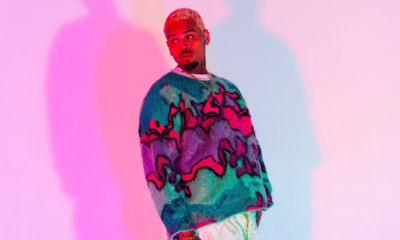


 Business1 year ago
Business1 year agoCHRIS BROWN: The Top Recording Artist ALIVE [Vocal Range]
-



 Business2 years ago
Business2 years agoTVM-TV LIVE
-

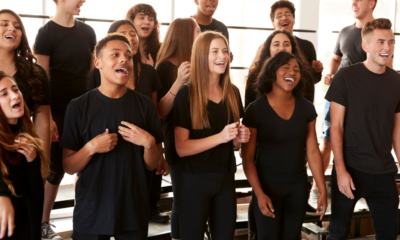

 Business2 years ago
Business2 years agoBenefits of Joining a Choir
-

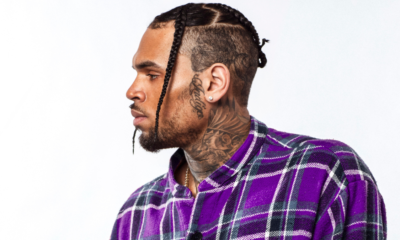

 Business2 years ago
Business2 years agoChris Brown’s 12th Studio Album “Breezy”
-

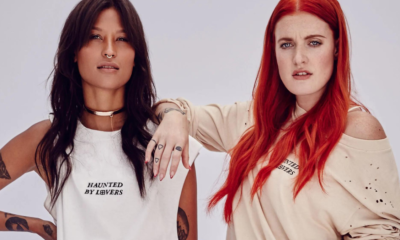

 Tech7 years ago
Tech7 years agoICONA POP
-



 Business2 years ago
Business2 years agoFood for Singers: The Diva Diet
-

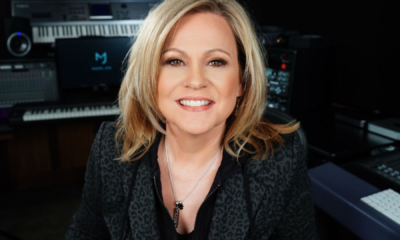

 Business2 years ago
Business2 years agoINTERVIEW WITH MAMA JAN


